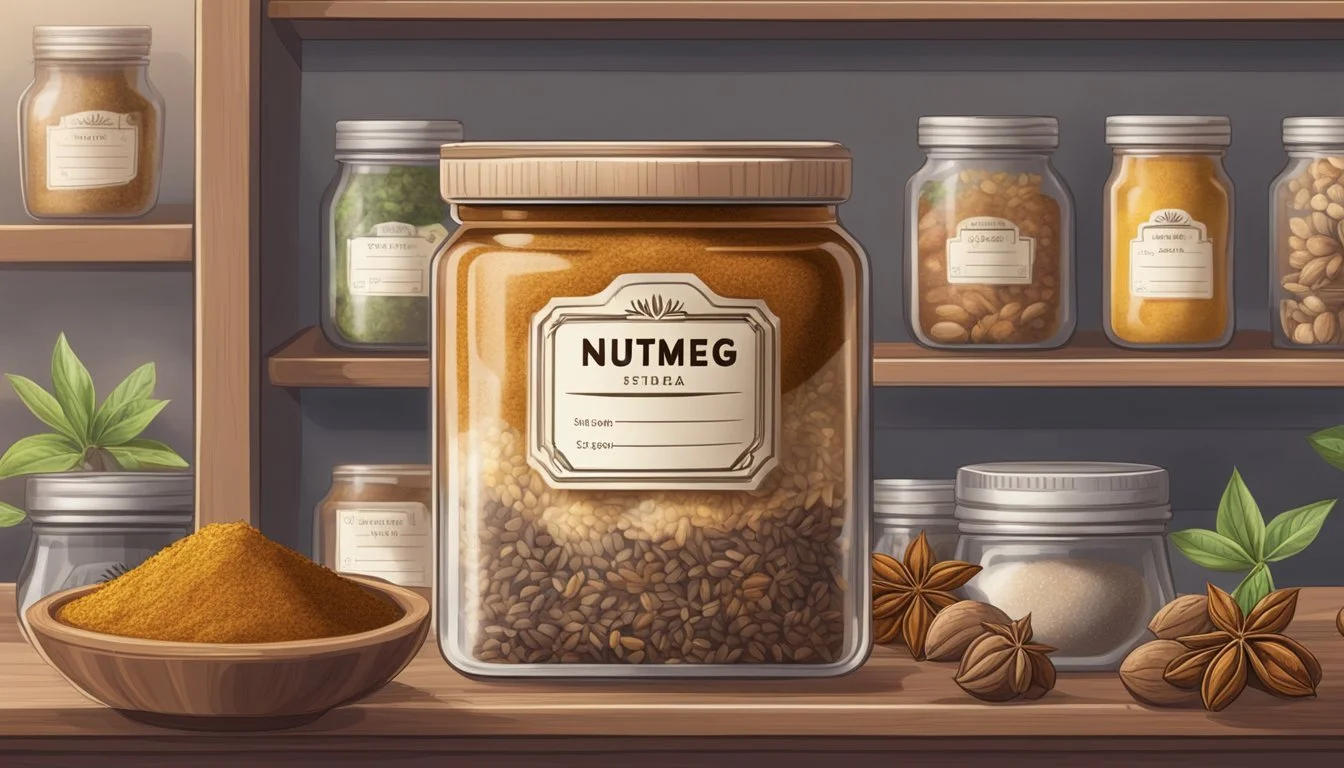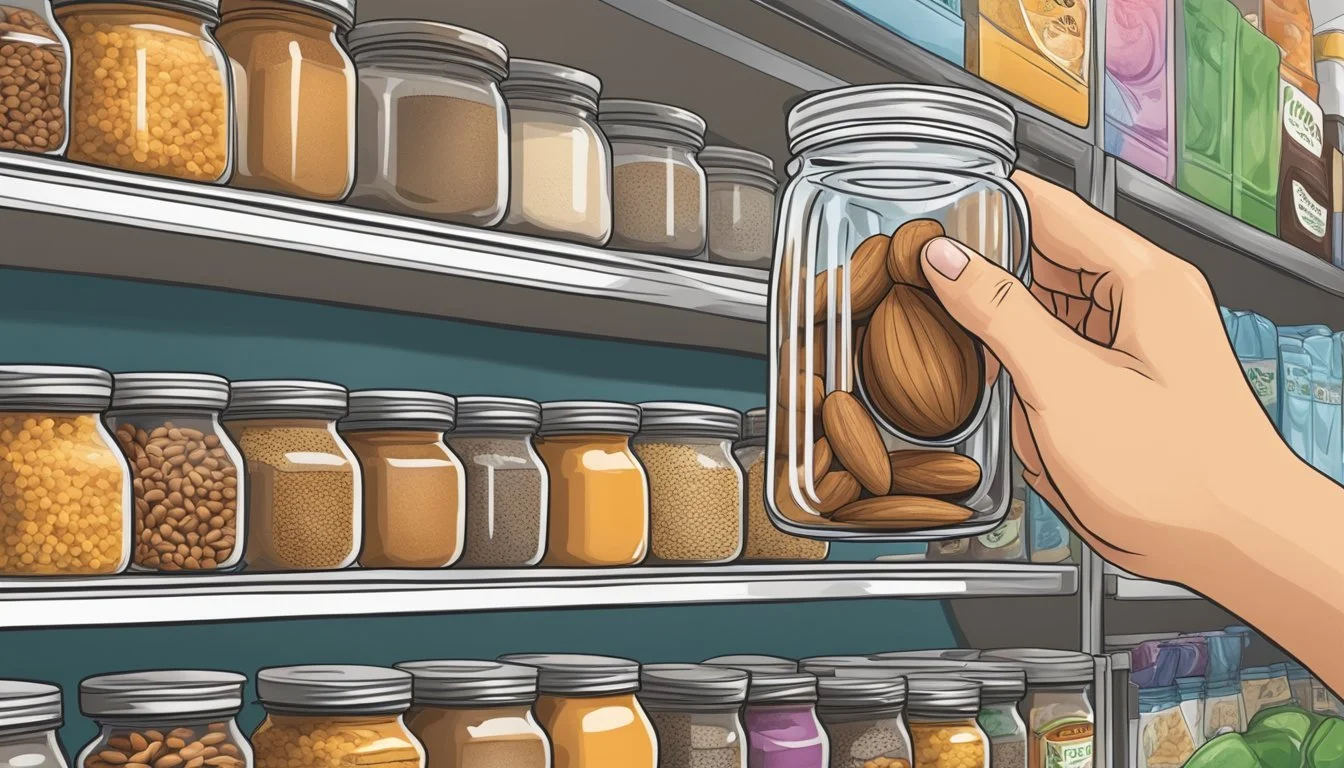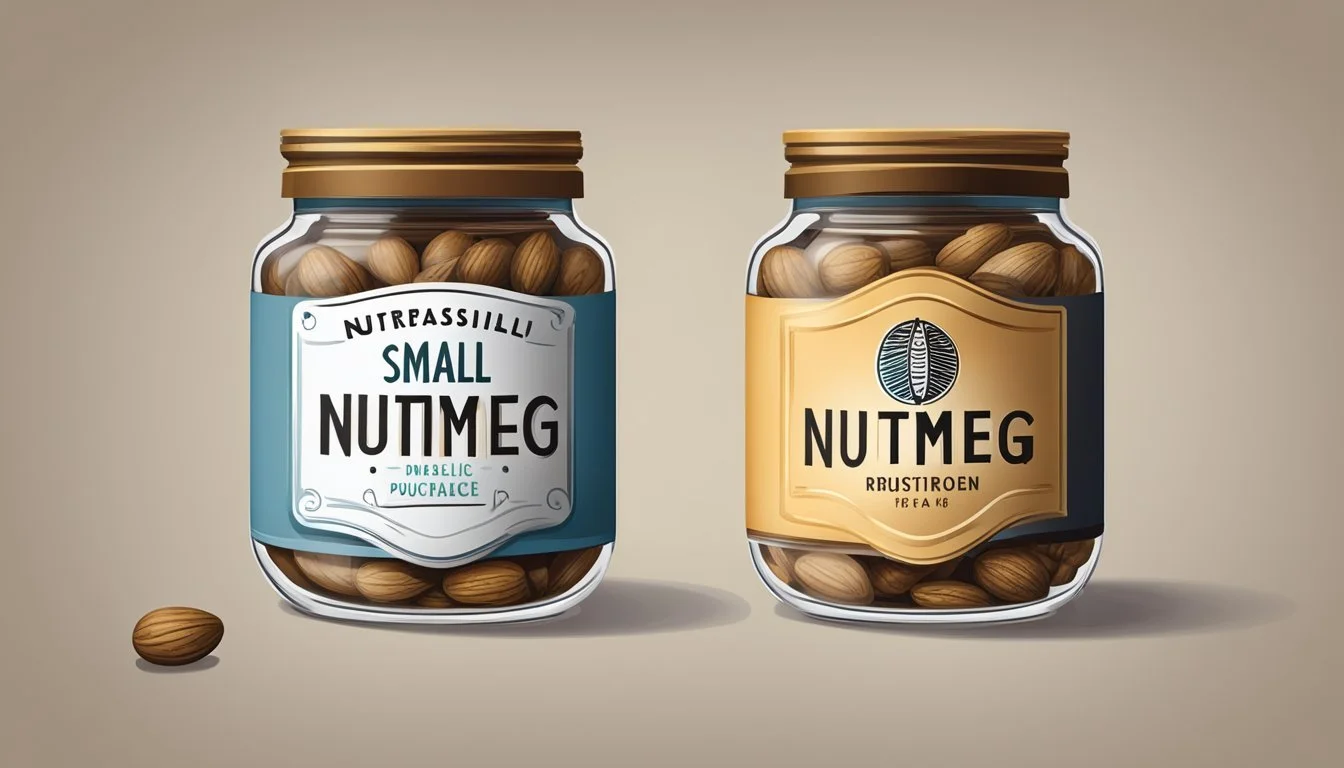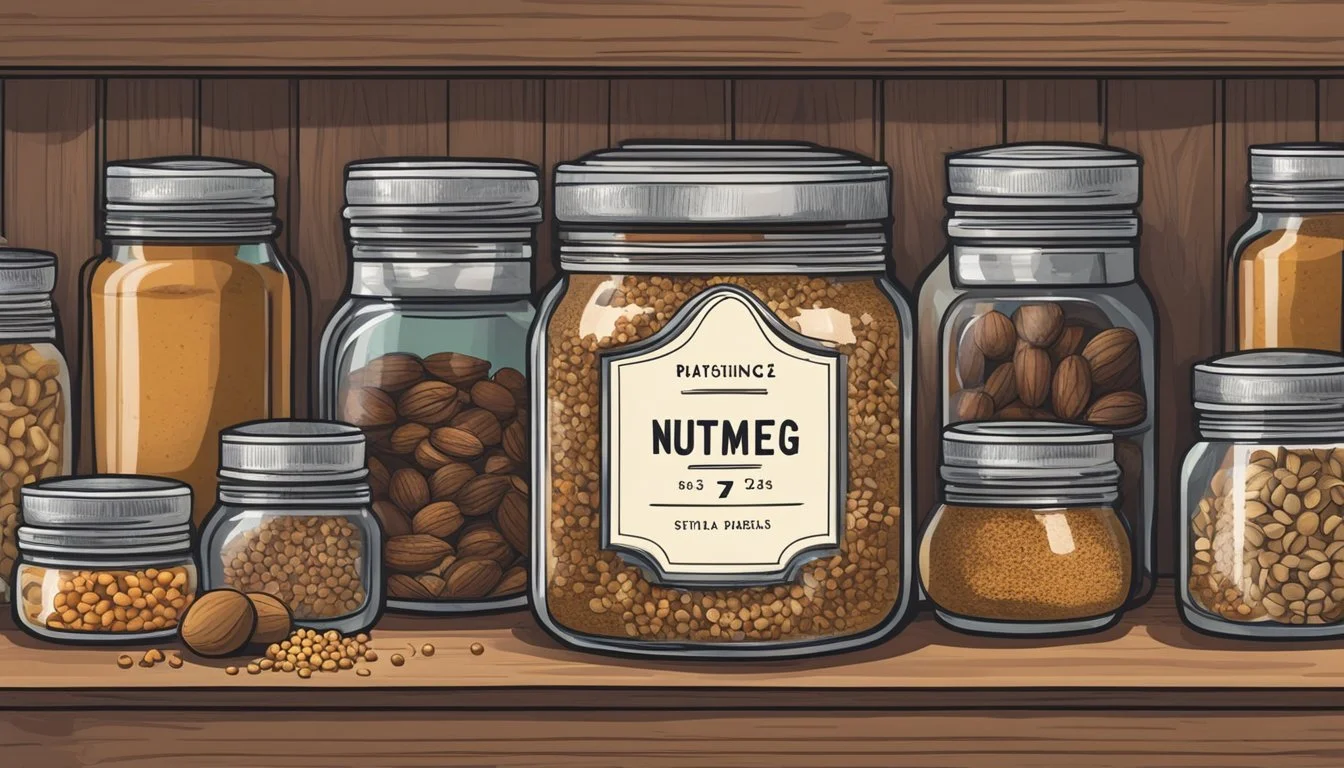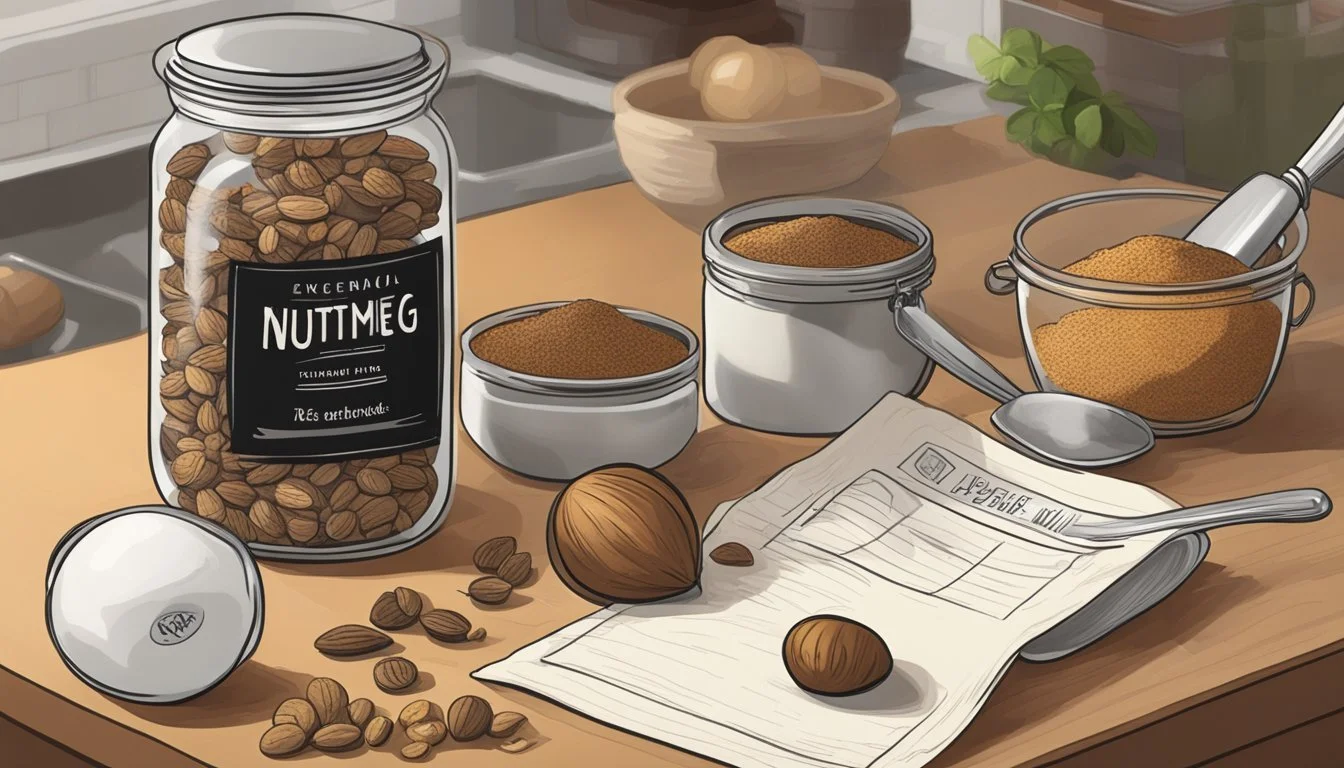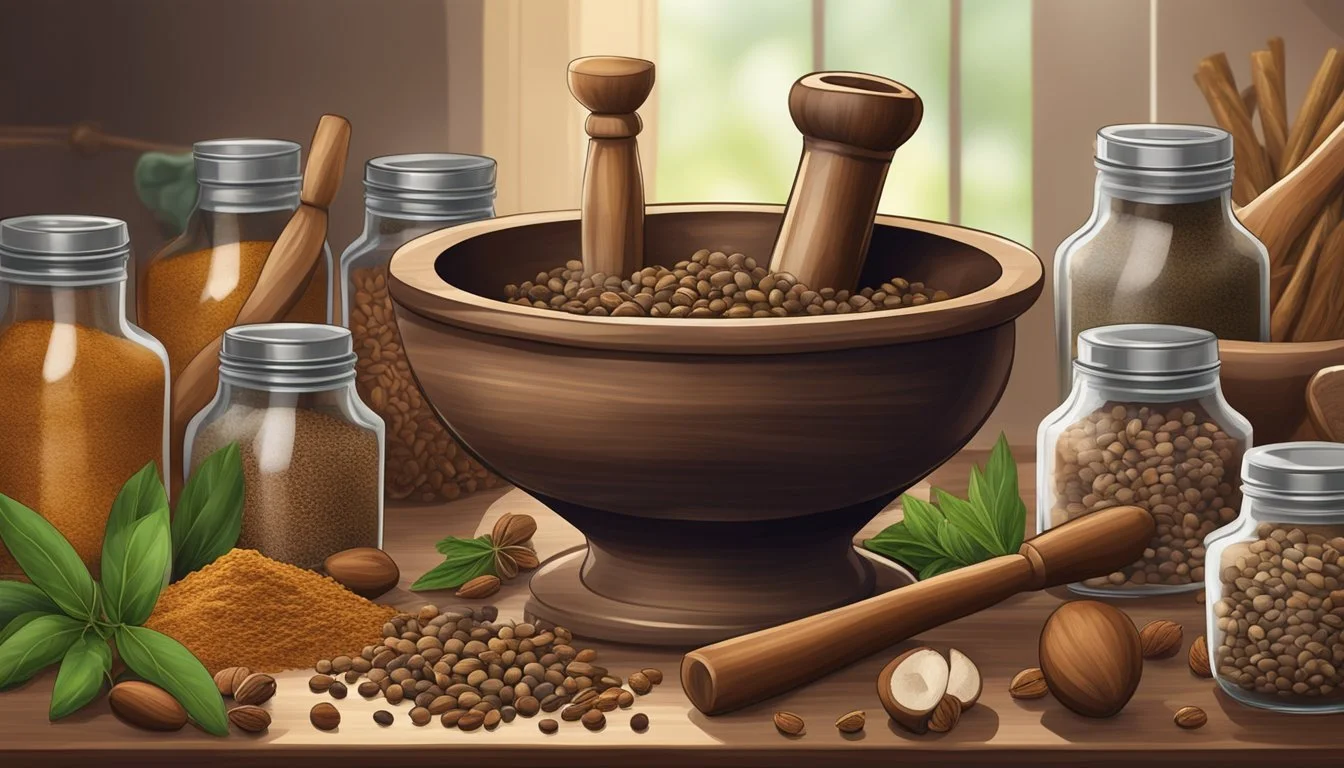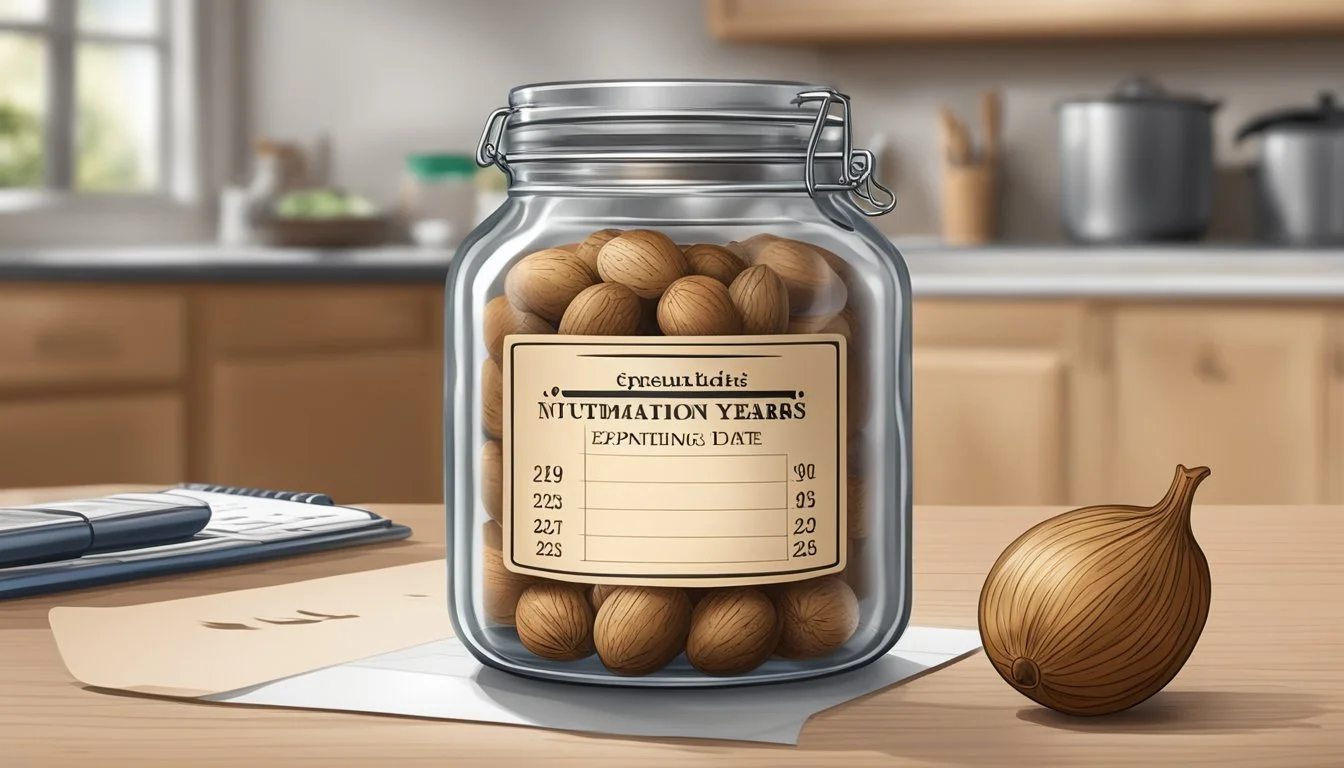How Long Does Nutmeg Last?
Shelf Life and Storage Tips
Nutmeg, as a popular spice, is appreciated for its warm, nutty flavor used in both sweet and savory dishes around the world. Its shelf life, however, varies depending on its form. Ground nutmeg is generally potent for about 2 to 3 years if stored correctly in an airtight container shielded from heat, light, and moisture. This duration ensures that the spice maintains its full flavor, making it an essential consideration for those looking to keep their pantry staples fresh.
Whole nutmeg, on the other hand, can last significantly longer due to its dense structure which is less exposed to the elements that accelerate spoilage. While it can remain safe to use indefinitely, it is recommended to use whole nutmeg within a period of 2 to 4 years to enjoy its peak flavor profile. Good storage practices involve keeping the whole nutmegs in a cool, dry place away from direct sunlight, and ideally in a tightly sealed container to prevent exposure to air and moisture.
Although nutmeg can be safe to consume beyond these periods, its flavor may diminish over time. Regularly checking the potency of nutmeg can help in determining whether it still adds the desired depth to culinary creations, with the understanding that as spices age, the flavors may become less pronounced, and slightly larger quantities might be required to achieve the same taste effect.
Understanding Nutmeg
Nutmeg is a spice with a rich history and diverse culinary applications, known for its distinctive flavor and potential health benefits.
History and Origins
Nutmeg is native to the Banda Islands in Indonesia and has a long history both as a spice and for its medicinal properties. The seed of the nutmeg tree (Myristica fragrans), it is closely related to mace, (how long does mace last?) another spice derived from the tree's lacy aril. The value of nutmeg has been recognized for centuries, and it played a pivotal role in the spice trade of the 15th and 16th centuries.
Culinary Uses
The culinary uses of nutmeg are extensive, as its warm, slightly sweet flavor makes it a versatile ingredient in both sweet and savory dishes. It is commonly used in baked goods like pies and cakes, as well as in soups, sauces, and meat dishes. It is also a key component in spice blends such as garam masala (how long does garam masala last?) and pumpkin pie spice. Nutmeg's aroma enhances the overall flavor profile of a dish, which is why it is best used in moderation.
Health Benefits
Nutmeg boasts a number of health benefits attributed to its anti-inflammatory and digestive properties. It has been used in traditional medicine to treat various ailments such as pain and indigestion. However, it should be noted that high doses of nutmeg can have adverse effects and should be consumed in moderation.
Anti-inflammatory: Nutmeg contains compounds that have been shown to have anti-inflammatory effects, potentially aiding in the reduction of pain and swelling.
Digestion: Small quantities of nutmeg can aid in digestion and soothe stomach aches and related issues.
It is important for consumers of nutmeg to use this spice responsibly and enjoy the range of flavors and benefits it provides.
Selecting and Purchasing Nutmeg
When selecting nutmeg, consumers should consider factors that influence quality such as freshness, which directly affects the spice's flavor and aroma. Purchases can be made from various outlets, including grocery stores and specialized spice shops.
Factors of Quality
Flavor and aroma are telltale indicators of nutmeg's quality. Nutmeg should have a sweet, warm, and slightly nutty flavor profile, while its aroma should be rich and woody. Potency is another important factor; high-quality nutmeg will have a potent scent and flavor, indicative of its essential oils, which contribute to both its taste and therapeutic benefits.
Spotting Freshness
Fresh nutmeg can generally be spotted by its intact shape and firm texture. Whole nutmegs should be heavy for their size and devoid of cracks or holes. Color is also a useful indicator, as they should exhibit a warm, tan hue without any signs of discoloration. When purchasing ground nutmeg, consumers should look for a uniform color and a strong aroma upon opening the container. Retaining freshness is critical for maintaining nutmeg's distinct characteristics, and buyers should opt for small quantities to ensure it remains potent between uses.
Storing Nutmeg
Proper storage of nutmeg is crucial for maintaining its flavor and extending its shelf life. Both whole and ground nutmeg have specific storage needs to consider.
Whole vs Ground
Whole nutmeg tends to last longer than ground nutmeg due to its reduced surface area, which slows down the loss of essential oils. Whole nutmeg can be stored for up to 4 years. In contrast, ground nutmeg typically has a shelf life of about 2 to 3 years.
Ideal Storage Conditions
To preserve the flavor and longevity of nutmeg, one should store it in an airtight container. Nutmeg should be kept in a cool, dark place, such as a pantry or cupboard, away from heat and light which can degrade the spice’s quality. Humidity should also be minimized to prevent clumping.
Impact of Moisture and Light
Exposure to moisture can lead to mold growth and clumping, significantly impacting flavor and safety. Light and air can cause the essential oils in nutmeg to lose their potency. Therefore, storing nutmeg in a dark place and minimizing air exposure with containers that are properly sealed, like jars with tight lids, is essential. Additionally, one may consider labeling and dating the containers to keep track of their freshness.
Shelf Life of Nutmeg
The longevity of nutmeg greatly depends on its form, whether it's whole or ground. Proper storage is crucial for maintaining its quality and potency.
Whole Nutmeg Shelf Life
Whole nutmeg, when stored in a dry and cool environment, can maintain freshness and quality for up to 4 years. The robust outer shell of the nutmeg safeguards it from oxidation and spoilage, thus extending its shelf life.
Ground Nutmeg Shelf Life
In contrast, ground nutmeg has a comparatively shorter shelf life of about 2 to 3 years when stored adequately. The grinding process increases the surface area exposed to air, which can lead to faster loss of potency and quality.
Signs of Spoilage
Nutmeg may not necessarily become unsafe to consume after its expiration date, but the flavor and potency will diminish over time. Spoiled nutmeg may exhibit:
A dull aroma, indicating a loss of essential oils.
A taste that's no longer vibrant or is noticeably bland.
Visible signs such as mold should lead to immediate disposal of the spice.
To extend the shelf life, storing nutmeg in airtight containers away from heat, light, and moisture is recommended. Freezing is not commonly suggested for spices like nutmeg, as it can introduce moisture and lead to spoilage.
Using Nutmeg in Cooking
Nutmeg is renowned for its warm, slightly sweet flavor and enchanting aroma, making it a versatile spice in both savory and sweet culinary applications. It's commonly available as whole seeds or ground powder, with whole seeds retaining their potency longer.
Incorporating into Dishes
When incorporating nutmeg into dishes, it's crucial to understand the strength of the spice. A little goes a long way due to its intense flavor. Nutmeg is a staple in baking, particularly in cakes and pies, and is integral to seasoning blends like pumpkin pie spice. In savory dishes, such as soups and sauces, nutmeg adds a subtle complexity that can elevate the overall flavor profile. Here are specific ways to use nutmeg in cooking:
Baking: Grate fresh nutmeg into batter for cakes or use in fillings for pies.
Soups & Sauces: A dash of ground nutmeg or freshly grated nutmeg can deepen flavors.
Eggnog & Drinks: Spice up your beverages by adding a pinch of nutmeg to eggnog or other festive drinks.
Savory Dishes: Enhance savory dishes by using it sparingly in curries or other recipes that require a nuanced flavor.
It's generally best to grate whole nutmeg with a microplane or a specific nutmeg grater to achieve the freshest flavor and aroma.
Pairing with Other Spices
Nutmeg pairs exceptionally well with other spices due to its warm, nutty flavor profile. In spice blends, it complements the sweetness of cinnamon, the pungent kick of clove, the zestiness of ginger, and the warmth of allspice. These pairings are essential to creating dynamic and flavorful dishes across different cuisines. Here's how nutmeg works with other spices:
In sweet dishes: Combine with cinnamon and clove for a classic, autumnal flavor in baked goods.
In savory recipes: Blend with allspice and ginger for a robust, fragrant kick in curries and savory spice mixes.
In spice blends: Nutmeg is an integral part of spice mixtures like pumpkin pie spice, contributing to its layered flavors.
When pairing nutmeg with other spices, it's vital to balance the proportions to maintain the desired harmony in the dish's flavor.
Nutmeg Preservation Techniques
Proper storage methods can significantly extend the shelf life and preserve the quality of nutmeg. This section details specific techniques to maintain the spice's potency and offers ways to rejuvenate nutmeg when it starts to lose its vibrancy.
Extending Nutmeg's Potency
To maximize the potency of nutmeg, one should always prefer to store it in its whole form. Upon grinding, nutmeg begins to lose its essential oils, which are responsible for its rich flavor and aroma. To ensure longevity:
Store in Air-Tight Containers: Place whole nutmegs in an air-tight container to protect them from moisture and air, which can diminish the flavor.
Avoid Light and Heat: Keep the container in a cool, dark place, far from direct sunlight or heat sources to prevent the degradation of essential oils.
Consider Freezing: For extended storage, one can freeze nutmeg, though this method may affect texture. Use heavy-duty freezer bags or air-tight freezer-safe containers to deter freezer burn.
Rejuvenating Nutmeg
Nutmeg that has lost some of its potency can be partially rejuvenated:
Lightly Toast: If the nutmeg seems dull, they can lightly toast whole nutmeg on a pan, which may help to release essential oils and revive its aromatic profile.
Fresh Grinding: Grinding nutmeg right before use, rather than using pre-ground nutmeg, ensures the freshest flavor and finest texture.
Taking these precautions helps maintain the flavor integrity and extends the utilization period of nutmeg in one's culinary repertoire.
Nutmeg in Traditional Remedies
Nutmeg has been prized not only as a culinary spice but also for its therapeutic properties. It has served in various cultures as a natural remedy for a multitude of ailments, notably due to its anti-inflammatory and digestion-aiding qualities.
Historical Medicinal Uses
Historically, nutmeg was held in high regard within traditional medicine practices. In Ayurveda and Unani systems of medicine, it was commonly used to enhance digestion and treat gastrointestinal disorders. Its anti-inflammatory properties made it a go-to remedy for pain relief, especially for complaints like arthritis and muscle pain. With its warming sensation and spicy flavor, nutmeg was also believed to improve brain function and was used to treat nervous system disorders.
Contemporary Applications
In modern times, nutmeg continues to find use in natural health circles despite the shift to conventional medicine. Its essential oil is often applied in aromatherapy to reduce stress and promote relaxation. The spice is also included in contemporary over-the-counter digestive aids and sleep inducements because of its sedative properties. With ongoing research, the efficacy of nutmeg in various forms—ground, whole, or oil—is still explored for its potential health benefits in tackling maladies.
FAQs About Nutmeg
When approaching the subject of nutmeg's lifespan, one must consider factors such as its form—whole or ground—as well as storage conditions which are critical to maintaining its freshness and potency. Nutmeg is more than just a spice; it's a contributor to a variety of flavors in both sweet and savory dishes.
Common Questions & Answers
How long can nutmeg last before it isn't considered fresh?
Whole nutmeg remains fresh for up to 4 years.
Ground nutmeg's freshness can last around 2 to 3 years.
Does nutmeg ever truly expire or become unsafe to use?
Nutmeg does not typically become unsafe, but it will lose potency over time.
The expiration date on the package represents the period for optimal quality rather than safety.
What are the signs that nutmeg has lost its potency?
Diminished aroma
Muted flavor profile
How should nutmeg be stored to maintain its freshness?
Place in an airtight container.
Keep away from heat, light, and moisture.
Does the variety of nutmeg affect its shelf life?
Indonesian nutmeg is known for its quality, but shelf life remains consistent across varieties, depending on storage.
Can nutmeg still be used after the labeled expiration date?
Yes, if it retains its scent and taste, although its flavors may not be as robust.


